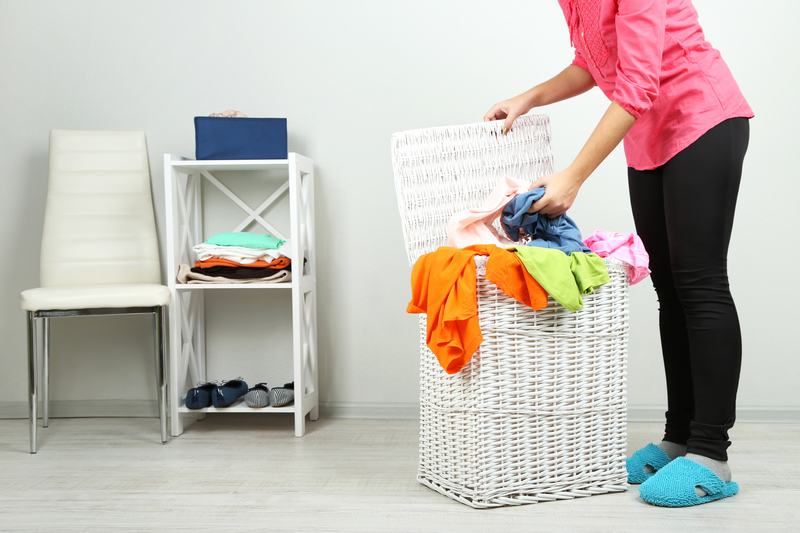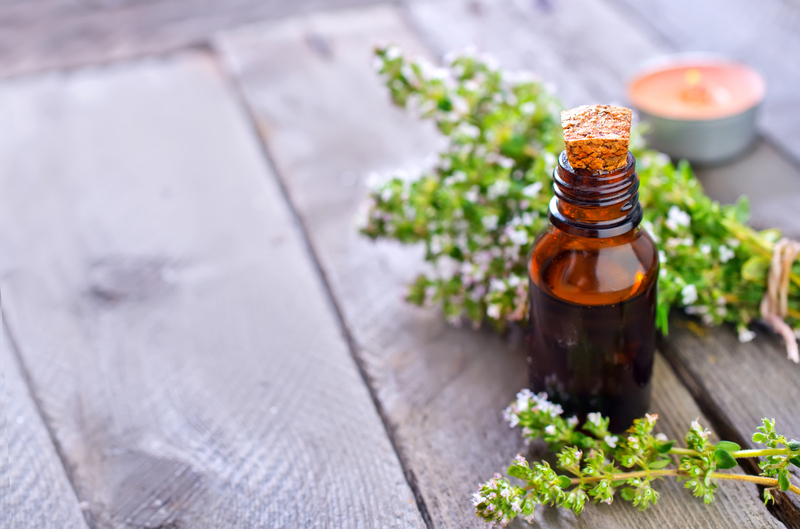Essential Jewellery Cleaning Processes Revealed
Posted on 26/08/2025
Essential Jewellery Cleaning Processes Revealed
Jewellery is more than just an accessory; it's a statement of elegance, style, and sometimes even sentiment. Over time, precious jewellery can lose its original luster due to dirt, oil, and environmental factors. Fortunately, with the right cleaning methods, your treasured pieces can regain their *sparkle*. In this comprehensive guide, we'll reveal essential jewellery cleaning processes that every owner needs to know. From household tips to professional techniques, discover how to keep your jewellery shining brilliantly.
Why Proper Jewellery Cleaning Is Crucial
Jewellery maintenance is not only about aesthetics; it's also vital for long-term preservation. Dirt and grime can compromise the structural integrity of delicate pieces, while improper cleaning methods risk permanent damage. Understanding essential jewellery cleaning techniques ensures both the beauty and durability of your beloved items.
Main Benefits of Regular Jewellery Cleaning
- Preserves shine and brilliance
- Prevents metal tarnishing and gemstone cloudiness
- Removes harmful bacteria and allergens
- Extends the life of your pieces
- Enhances wearer comfort

Understanding Your Jewellery's Materials
Before you embark on any cleaning routine, it's essential to identify your jewellery's material. Gold, silver, platinum, and various gemstones each require specific care. Being aware of what you're cleaning helps you choose the safest and most effective process for your piece.
The Most Common Jewellery Materials
- Gold (yellow, white, rose)
- Silver
- Platinum
- Diamonds
- Other Gemstones (emerald, sapphire, ruby, opal, etc.)
- Pearls
- Costume Jewellery
Tip: Always look for manufacturer's cleaning recommendations for unique or antique pieces before starting any process.
Essential Home Jewellery Cleaning Processes
1. Gentle Soap and Warm Water Method
This is the safest, most universal method for most jewellery types.
- Mix a few drops of mild dish soap with warm (not hot) water.
- Soak your jewellery for 20-30 minutes.
- Gently scrub with a soft-bristle toothbrush, focusing on crevices.
- Rinse thoroughly with clean lukewarm water.
- Dry with a soft lint-free cloth.
This process is gentle yet effective, making it a mainstay for gold, platinum, diamonds, and most hard gemstones.
2. Baking Soda Paste for Silver Jewellery
Silver is prone to tarnishing, but regular cleaning can restore its shine:
- Make a paste with 2 parts baking soda and 1 part water.
- Apply gently using a soft cloth or sponge.
- Buff in small circular motions.
- Rinse and dry thoroughly.
Do not use this method on soft gemstones or pearls!
3. Ammonia Solution for Diamonds and Hard Gems
For diamonds and robust gemstones, ammonia can boost cleaning power:
- Mix 1 part ammonia with 6 parts water.
- Soak jewellery briefly (no more than 1 minute).
- Brush gently, rinse well, and dry.
Warning: Ammonia is not suitable for gold, silver, pearls, or porous stones.
4. Special Care for Pearls and Delicate Gems
Pearls, opals, and other soft stones require unique attention:
- Wipe with a soft damp cloth after each wear.
- Never soak pearls or use harsh chemicals.
- Store separately to avoid scratches.
Pearls thrive on body oils, but excessive moisture or chemicals can damage their surface.
Professional Jewellery Cleaning Techniques
Some jewellery cleaning processes demand tools and expertise beyond home remedies. Professional jewellers utilize advanced methods to restore the brilliance of even heavily soiled or intricate items.
1. Ultrasonic Cleaning
This method uses high-frequency sound waves to dislodge dirt from hard-to-reach areas.
- Jewellery is placed in a device filled with a specialized cleaning solution.
- Ultrasonic vibrations shake off dirt and grime in minutes.
- Highly effective for gold, platinum, and diamonds.
Note: Not recommended for pearls, opals, emeralds, or antique pieces as vibrations can cause damage.
2. Steam Cleaning
Jewellers use high-pressure steam to blast away stubborn dirt and oils:
- Targets deep-set residues without abrasive action.
- Ideal for robust materials but not for soft stones or fragile settings.
* Always consult a professional to assess stone integrity before steam cleaning.
3. Professional Polishing and Inspection
- Expert jewellers use a series of polishing tools and compounds suitable to the metal and gem type.
- Settings and prongs are checked and tightened during cleaning to prevent gemstone loss.
- Polishing restores shine while careful inspection improves longevity.
Common Jewellery Cleaning Mistakes to Avoid
While home cleaning is effective, mistakes can cause irreparable damage. Here are some of the most common pitfalls:
- Using abrasive cleaners or rough brushes - Risk scratching soft stones and metals.
- Soaking porous stones such as turquoise, emerald, or opal - Leads to discoloration and structural weakness.
- Exposing jewellery to bleach or harsh chemicals - Causes pitting, color changes, and damage.
- Ignoring expert cleaning for antique pieces - Some vintage items require specialized restoration.
- Forgetting to rinse and dry thoroughly - Residual soap and moisture can cause tarnish spots.
Jewellery Cleaning for Specific Materials
Gold
Gold jewellery is durable but still needs gentle care:
- Use warm water and mild soap for routine cleaning.
- For stubborn tarnish, a professional cleaning cloth works best.
- Store gold separately to prevent scratches from harder gems.
Silver
Silver tarnishes faster than gold due to chemical reactions with air:
- Polish with a dedicated silver cloth.
- Avoid rubber bands or latex, which accelerate tarnish.
- After cleaning, store in anti-tarnish pouches.
Platinum
Extremely durable yet susceptible to developing patina:
- Clean regularly with mild soap and water.
- Professional polishing restores the original finish.
Gemstones
Avoid exposing most gemstones to ultrasonic cleaners or extreme temperatures:
- Use a soft, damp cloth and mild soap.
- Avoid household cleaners and bleach.
- Store separately to prevent scratches.
Pearls
Pearls are especially delicate:
- Wipe after each wear.
- Restring necklaces periodically to prevent stretching and friction damage.
Expert Tips for Long-Lasting Jewellery Sparkle
- Remove jewellery before bathing or swimming to protect from corrosive chemicals.
- Apply lotions and perfumes before wearing jewellery to reduce buildup.
- Store pieces individually to avoid scratching and tangling.
- Schedule professional cleanings annually or every six months for heavily worn pieces, such as engagement rings.
- Regularly inspect clasps, prongs, and settings to avoid losses.

Frequently Asked Questions about Jewellery Cleaning Processes
- How often should I clean my jewellery?
For daily wear items like rings, clean once a week. For occasional pieces, once a month is sufficient. - Is ultrasonic cleaning safe?
It's safe for gold, silver, platinum, and diamonds--but avoid for soft stones, pearls, and antiques. - Can toothpaste be used as a jewellery cleaner?
No. Toothpaste is abrasive and will damage most metals and stones. - How do I clean costume jewellery?
Use a soft cloth dampened with soapy water. Avoid soaking as adhesives may dissolve.
Conclusion: Preserve Your Jewellery with Proper Cleaning Processes
Jewellery is an investment in beauty and sentiment. By understanding these essential jewellery cleaning processes, you not only restore its original brilliance but also extend the lifespan of your precious pieces. Choose the method best suited for your unique items, avoid common mistakes, and make professional cleaning a part of your routine.
Whether your treasured gold chain, platinum ring, diamond earrings, or delicate pearls, regular and thoughtful care will ensure they remain as stunning as the day you received them. Let these best practices be your guide to lasting jewellery sparkle and heritage.
Ready to revive your cherished jewellery?
Begin now with these essential cleaning techniques and give your pieces the *care and brilliance* they deserve!
Latest Posts
Pro Tips for Sparkling Clean Windows
Transform Your Home into an Odor-Free Sanctuary
Insider Techniques for Cleaning Your Car Like a Pro



